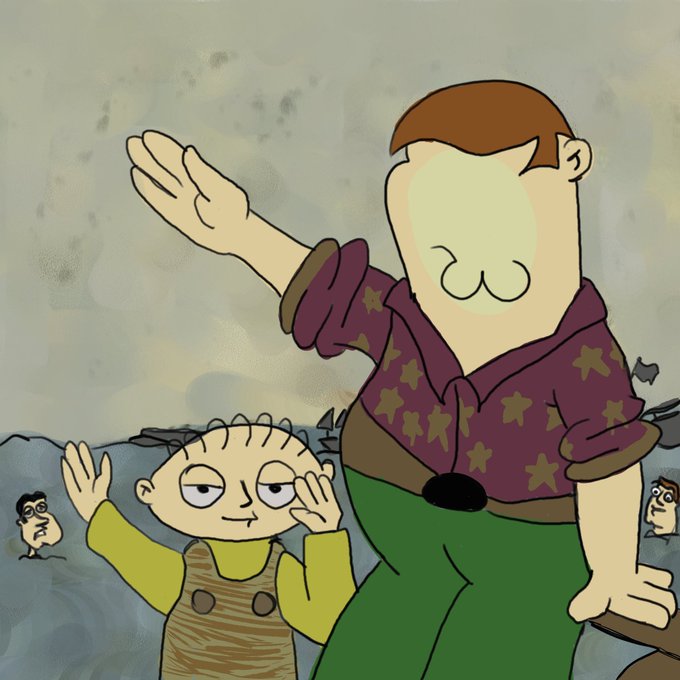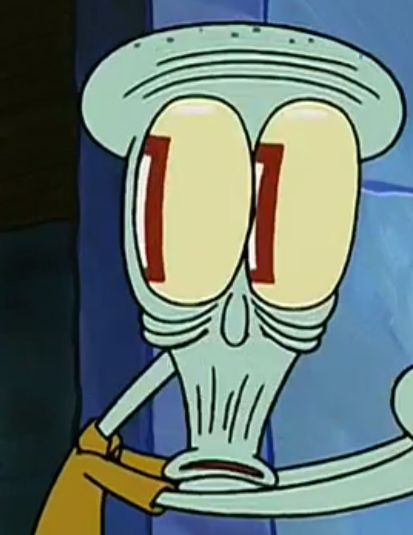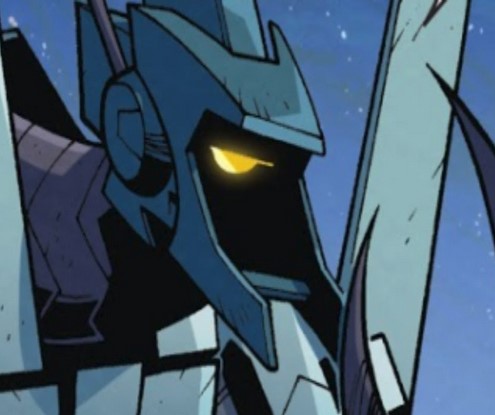Probably They Live. I love that the hero is a homeless working class guy. The whole movie has a deep vein of old working class sentiment running through it. A scathing commentary of Reagan's america and capitalism. Plus it's a great action movie to boot. I just love John Carpenter. Second favorite is The Matrix, with Empire Strikes Back coming in third.
Harry Potter because of all the insightful sociopolitical commentary
On a more serious note, I'd say that mine is Parasite, I've never seen any other movie which excels at pretty much every single aspect of cinema
Mad Max: Fury Road is a really fuckin' good movie that I can guarantee basically anybody could be engaged by it from beginning to end and have a great time, and it has all kinds of conservationist and feminist themes and imagery baked into it.
Agreed. It's at the very least my favorite action movie, absolute 10/10. And I remember how it had chuds going :frothingfash: back when it was released, which makes it even better
I have a hard time picking my favorite so I'll just give my top 5.
Judas and the Black Messiah - Fantastic movie about the man who sold Fred Hampton out to the FBI and Chicago PD.
There Will Be Blood - Every time I watch it I feel differently about it. The movie is about two repulsive people, an oil man and an evangelical preacher, and their 27-year long feud with each other. They're both narcissistic charlatans who manipulate the public and hurt their loved ones, and they keep getting in each others' way. I've always thought it was a good movie, but it's very slow paced. Each time I notice new subtleties of characterization and meaning.
The Holy Mountain - A very bizarre arthouse movie made in Mexico in the early 70s. Full of political and religious metaphors. Follows a Christ-like character's journey to meet the 8 corrupt leaders who rule the world, each of them represented by a planet. The Christ figure takes the planets on a journey to meet the alchemist at the top of the holy mountain, who will give them the secret of immortality. The narrative is entirely besides the point.
The Last Duel - A very recent movie. Very graphically depicts sexual assault so be warned up front. It follows the real life case of the last legal Trial By Combat in medieval France in the 1380s between Jacque Le Gris and Jean de Carrouges, two knights serving under the same liege lord. The movie explores how medieval women were treated as property, as well as medieval attitudes towards sex, consent, and rape. It's a "rashomon" style movie that tells the same story from 3 different perspectives. It deliberately saves the victim's story, which is the truth, for last. I'd argue it's a feminist movie, even if it's odd to see it that way. It also explores the way men are able to tell themselves lies in order to trick themselves into believing their most hideous actions are OK.
Akira - Fantastic soundtrack, fantastic animation. Loosely adapted from a much longer manga series. It's an imperfect adaptation, but an amazing spectacle.
Honorable mentions. Your mileage may vary: 2001: A Space Odyssey, Dr. Strangelove, Full Metal Jacket, Rashomon, Ran, Yojimbo, Whiplash, Children of Men, Birdman (not a superhero movie), Night Crawler (also not a superhero movie), 2009 Watchmen (edgy deconstructionist superhero movie, doesn't do full justice to source material, but still worth watching once), Godfather 1 and 2, Die Hard (it's fun, ok), Mad Max Fury Road (also just fun), Jackie Brown, Pulp Fiction, Inglourious Basterds, Reservoir Dogs, Paths of Glory, The Shining, Spirited Away, Princess Mononoke, Come And See, Metropolis (1927), Battleship Potemkin, AI: Artificial Intelligence, Citizen Kane, Amadeus, The Good The Bad and The Ugly, The Master, Punch Drunk Love.
I also liked The Last Duel, but I have some conflicted thoughts about it.
CW: Rape
I liked The Last Duel, but I have some reservations about it. I read the book the movie is based on, The Last Duel by Eric Jager. It's a pop history book so the author doesn't give us translations of the original court records or le Gris' lawyer's journal. But he does give us both their versions. To the movie's credit, Marguerite's version of events is roughly the same from book to film. Her mother-in-law leaves her alone while her husband is in Paris. Adam Louvel comes to the door and Marguerite reluctantly unlocks it. Jacques le Gris comes inside, unannounced, chases her to her rooms, and rapes her with Louvel present.
Le Gris' argument in court is that he was not near the castle where Marguerite was raped, that he was fifty miles away, and puts forward the theory that Marguerite mistook the identity of her attacker for le Gris. Evidently even the court of Parliament in Paris thought this was a poor defense since they allowed the duel to go through.
But the movie isn't a courtroom drama and doesn't linger long on the trial. Instead the version of events from le Gris we get in the film is purely the invention of the film's writers. And they paint a picture of le Gris as a man caught up in rape culture. I remember the film has a sex game in it that mimics rape, which we see le Gris engage in consensually, and then later in his POV it seems as if Marguerite was also doing the steps from the game. So part of the movie is the question of: Does Jacques le Gris honestly believe no rape occurred? And I suppose that's an interesting angle for a story, but it's also kind of a weird change. At the end of the duel, le Gris cries out "there was no rape." In the book, this seems like an act of cowardice from a man who knows he is going to die and wants to try and avoid being condemned to hell and also having his name dishonored in the world of the living. In the movie though, le Gris might honestly believe that.
I don't know what my criticism is here, exactly, other than it felt like kind of a weird change. It almost felt like, in a perverse way, they were trying to make le Gris a more likable character up until we get Marguerite's POV. And I did like the parts earlier in the movie when le Gris seems fairly likable, because the book spells out that le Gris was well liked by his peers, a well-read, charming socialite, whereas Jean de Carrouges was seen as thuggish and dour. I really liked the movie, but seeing the rape from his perspective and the way that was presented was just a little off-putting. I guess I felt like the movie wanted me to feel like le Gris was himself a victim of rape culture, that it almost wasn't his fault but the fault of the French noble society itself.
Also, I just checked both the book and the film, and the rape was even more violent than Marguerite's POV in the film. First he offers her money in exchange for sex. She refuses. I wish I could read a direct translation of whatever original the author is working from, because he's extremely clear. Le Gris goes from smiling to being visibly angry and says "you'll come upstairs whether you want to or not." Louvel and le Gris carry her upstairs. She fought back and escaped le Gris grasp multiple times. Eventually he had to call in Louvel and they held her down, and lashed her to the bed frame. He stuffs a gag in her mouth. And I don't know, they could've changed some of that for the censors, but I don't see how a scene faithful to Marguerite's actual testimony could've worked in the writers' whole Rashomon, "le Gris was confused" deal.
I don't know, the movie's commentary about patriarchy and rape culture and justice (or rather, trying to find justice in an unjust system) are all really interesting and pretty good, and obviously are commentaries about modern society as much as medieval France. But I'm still conflicted about the changes.
sorry for the essay.
CW: Rape
I remember the film has a sex game in it that mimics rape, which we see le Gris engage in consensually, and then later in his POV it seems as if Marguerite was also doing the steps from the game. So part of the movie is the question of: Does Jacques le Gris honestly believe no rape occurred? And I suppose that’s an interesting angle for a story, but it’s also kind of a weird change. At the end of the duel, le Gris cries out “there was no rape.” In the book, this seems like an act of cowardice from a man who knows he is going to die and wants to try and avoid being condemned to hell and also having his name dishonored in the world of the living. In the movie though, le Gris might honestly believe that.
See I simply interpreted this as Le Gris being willing to lie to himself. For all we know the women who were present at the "consensual" orgy with the "game" that was "mimicking" rape were themselves coerced into that situation. Even if they'd gone along with it to make it easier on themselves, that doesn't really count as consent. Le Gris and everyone else present were obviously drunk, and the situation was obviously being controlled and coerced by the men in the room. It was also told from Le Gris's perspective, which as we find out later is a highly distorted perspective. Le Gris is simply incapable of imagining himself to be capable of rape. His medieval male understanding of rape is limited to something that is done at sword point in the middle of an episode of violent pillaging. The idea that he could rape a fellow educated socialite by coercing them at an adult gathering is something he does not understand. The rape culture of medieval europe is so pervasive and all-encompassing that there is almost zero consensual sex happening at all. The movie also explores how medieval marriage was entirely conceived as a property-transfer arrangement between the father-in-law and the groom. The woman's consent never figures into it. The movie goes out of its way to mention that Margeurite never remarries after Carrouges dies. It also goes out of the way to show how women will indirectly participate in the rape culture by not standing up for each other, and ostracizing each other out of fear of being targeted (Carrouges's mother and Margeurite's friend both do this, with Carrouge's mother in particular emphasizing that she herself was raped, and that rape is simply a normal thing that happens and Margeurite should get over it and do her duties as a wife). Margeurite's husband rapes her too. After the rape by Le Gris. He also rapes her before Le Gris. The tragedy is that none of what happens to Margeurite is consensual, and even her "victory" in the court case is a bittersweet farce because it is based on a medieval understanding of God's will rather than an actual evolution in France's attitude towards rape. Le Gris and and Carrouges are both rapists, but Carrouges's rape remains legal because it is within the bounds of marriage. Le Gris's self-imposed and apparent ideological confusion on whether or not he's actually a rapist is simply a result of the rape culture brainworms. Just because Le Gris doesn't think of himself as a rapist doesn't mean anything. This is evident in the scene where the liege lord Pierre cuts through his confusing bullshit and tells him to simply "everywhere and always deny" the allegations.
The artistic decision to show Le Gris as being this charming socialite is to contrast the two vastly different kinds of men: conservative and liberal, brutal and refined, uneducated and educated, as both being equally capable of rape and treating women as nothing more than property. The movie wants you to find Le Gris charming so that his actions are all the more shocking later on. The movie sells you this idea of the duel as being this exciting thing to watch, but by the time you actually get to it, you're so thoroughly disgusted with both men that you only want Carrouges to win so Margeurite doesn't get burned at the stake, rather than out of a sense that he is truly morally superior Le Gris.
CW: Rape
These are all good points. I'd forgotten about the marital rape in the film because that isn't in the book (I read the book after seeing the film). Of course, because such a thing would never be brought up in a court in medieval France, and therefore wouldn't appear in the records the author worked from. I guess I'd just be happy if we got the movie as it is, except Marguerite's POV is more faithful to her testimony. Then again, if her entire POV is faithful to her testimony (which, since she wasn't actually allowed to accuse Jacques le Gris in the French parliament because of her gender, it's actually Jean de Carrouges' relaying her story to the courts) you'd get none of the other commentary regarding patriarchy and rape culture.
I think I might rewatch the film in light of the points you've raised here.
to be fair a lot of what I said is subtext that I gathered from my own understanding rather than something Ridley Scott et al. necessarily intended. Death of the Author and all that.
Great list. A few there I haven’t seen, but I know I should. One question: I haven’t gotten around to Holy Mountain because it comes up on lists of movies capturing real violence against animals. Do you recall if it’s anything major or graphic?
Holy Mountain is one of my favs but the level of animal abuse is on another level.
Both El Topo and The Holy Mountain contain depictions of meat as well as real violence against animals, yes. Should have mentioned that, sorry.
El Topo also has a scene of Jodorosky violently pressuring a woman into doing a sex scene, although in 2017 he said he was just making outlandish claims to sell the movie. He also at one point claimed to have eaten human flesh during the filming. It can still be disturbing for some people because it's still not clear if it's a genuine sexual assault on camera.
yeah that's why i don't recommend el topo to people ever
jodorowsky is a fucked up dude tbh
In Bruges, simply for the fact I was the only (I'm united stadien) person in the audience who got the Tottenham joke.
Also, Clerks. I grew up next to a liquor store and being out front skating, playing video games, and talking shit to all the folks coming into the store kind of resonated with me. Mallrats too, I guess.
The Fellowship of the Ring - because I love the books and Fellowship was my favorite of the three. Not to mention I think Fellowship is where Jackson is at his best capturing what's in the book onscreen, and in some cases surpasses (for example, I like the decision to make Frodo and the other three Hobbits roughly same age - better than the books that have a massive age difference.
The Lord of the Rings is the best movie trilogy and the first one is the one I like the best too. I think a big part of it is the long first act in Hobbiton - no other movie makes you fall in love with its main characters and the world that they have to fight to protect quite as well as LOTR does. In fact most modern movies really seem to fast forward through the part where you're made to care about the characters and the world in order to get to the first action scene, whereas in LOTR once the prologue ends you get over a half an hour of pure low stakes hijinks in the Shire setting up the hobbit characters, Gandalf and the ring.
Yep, the scenes in Hobbiton are my favorite scenes in any movie. Just perfect.
I know you're joking, but Taxi Driver is a legit incel fantasy. Awful movie that stands out amongst Scorsese's excellent catalogue.
I don’t think Taxi Driver is a bad movie at all. It’s the idiots who watch it and think the main character should be idolized.
It's the ultimate example of how satire doesn't really work, because people will just see what they want to see in a piece of art.
Starship Troopers has something to offer on every level, whether surface-level guns and titties action, or a closer look at military power dynamics, or a much deeper meditation upon fascist ideology.
I really like whiplash and baby driver
Idk might be basic, but those are probably my two all-time favorite movies
I was just watching whiplash again the other day. It's fantastic movie.
Not to be That Guy, but I found Baby Driver to be pretty cringe. It's well-filmed and all that, but the idea that some guy asks a waitress out on a date, and she's ready to toss out her life and run away with him shortly thereafter is like some twisted young male fantasy. Then again, maybe the movie itself condemns this behaviour on a more subtle level, but I couldn't see it and just felt icky.
Oh it's super dumb
But I really like the music and some of Edgar Wright's subtle easter eggs
I thought that it was just a bad dream I had as a child until I saw it again as an adult
Jurassic Park. In post Soviet America it is a narrative on (among other things) how tech progress under capitalism is possible, but inherently doomed to fail as broader concerns about life aren't taken into consideration.
The book is better in that regard. Hammond is a jerk and too cheap to pay people properly which is why Nedry betrays him and sabotages everything.
Absolutely. Many say that the movie is better than the book, but that's just because it's a good movie.
The depth Crichton went into in the book really made it fit with the then (early 90s) world.
Crichton wasn't perfect (so e early stuff on climate change, which he did reverse on), but his understanding of science and human interaction with science was pretty good. And on the climate change subject I still recommend State of Fear for its general analysis of society even if Crichton fucked up the landing.










